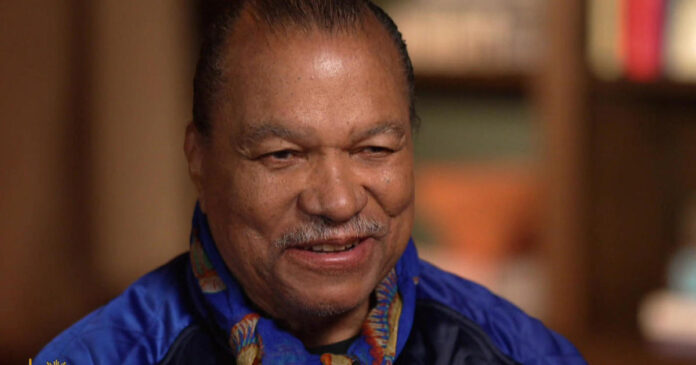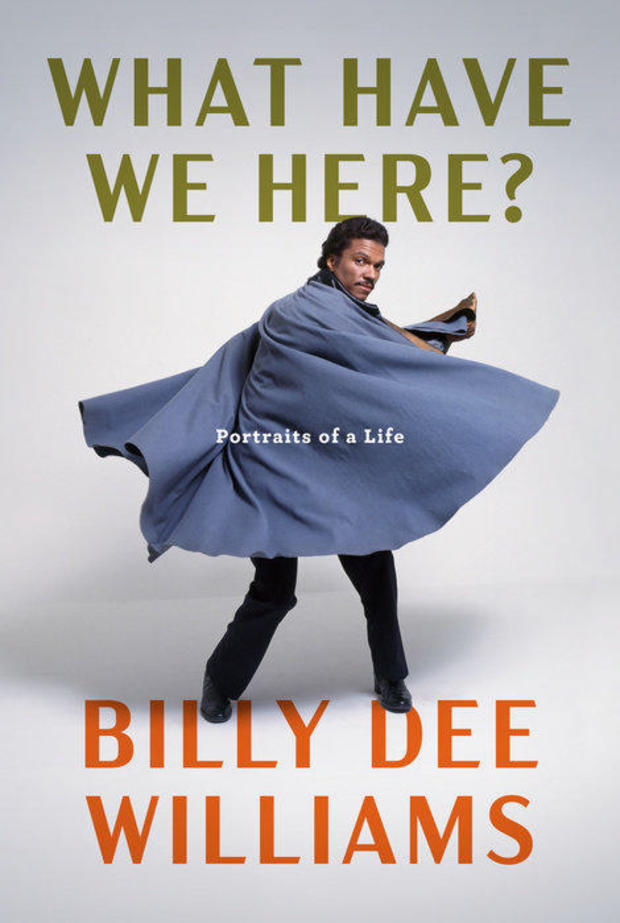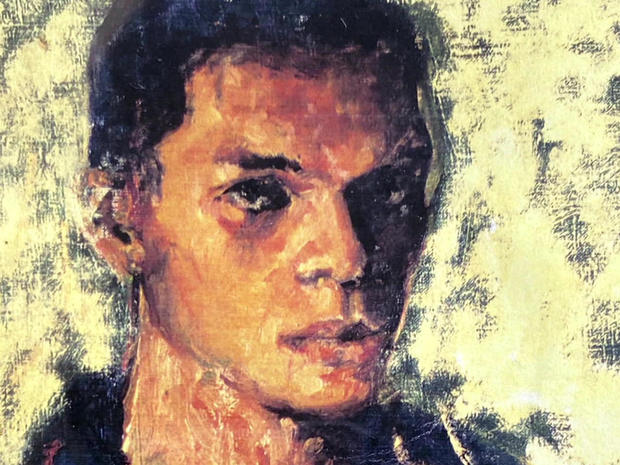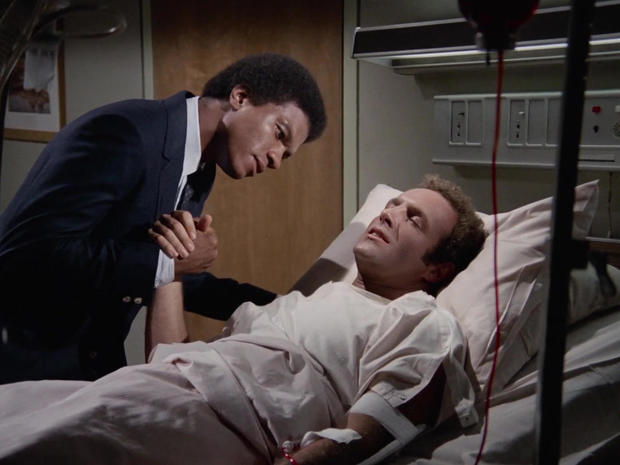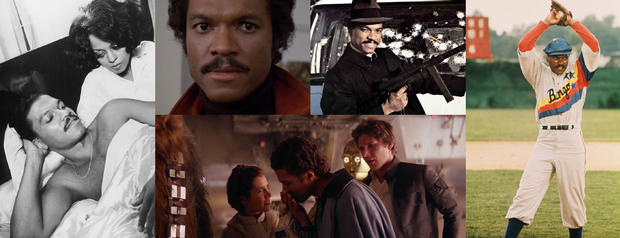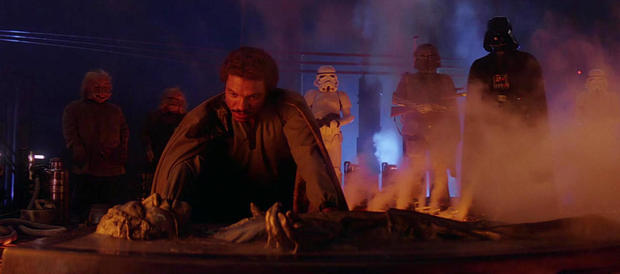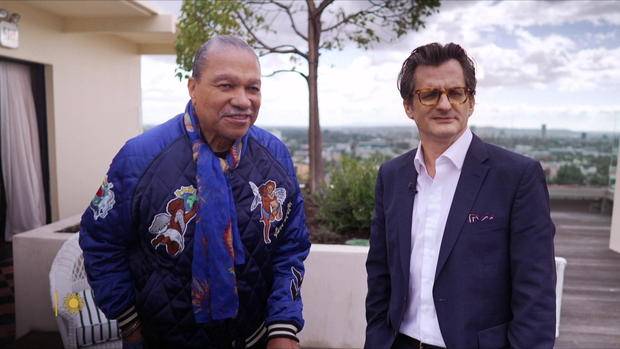Valentine’s Day at the historic Schomburg Center for Research in Black Culture, in Harlem, served as the perfect backdrop for Billy Dee Williams’ fans to show their love. Williams, now 86, helped define the modern romantic leading man on the big screen, first in 1972 opposite Diana Ross in “Lady Sings the Blues,” then again three years later in “Mahogany.” “I decided to become a romantic figure on the screen,” he said.
Was that a literal decision, to become a romantic figure? “Yeah. I’ve always wanted to be. I used to tell my mom I want to be like Rudolph Valentino!”
Williams didn’t stop at Rudolph Valentino; he added a little Errol Flynn, as a suave swashbuckler in a cape in “The Empire Strikes Back.” His introductory line to Princess Leia – “Hello, what have we here?” – became the title of his new memoir. It details his public and personal life; his close friendship with James Baldwin; backstage conservations with Laurence Olivier; and his love of being in love. He writes: “I had a weakness when it came to love and romance. The first moment of eye contact, a glance indicating interest, a mischievous smile, a sexy walk, a playful touch. That was my song.”
Yet, for all that charm and sex appeal, Williams said, “I’m really very insecure.”
Mankiewicz said, “It’s strange considering what you do, right? You give yourself in front of a camera with all these people watching, you become someone else. You emote. You cry. You get angry.”
“Well, maybe that’s why I become someone else, because I’m really insecure,” he said.
“Easier to be someone else than to be Billy Dee Williams?”
“Yeah. Because I don’t really like to talk about myself, and I like to keep to myself.”
Still, he’s written a pretty revealing memoir, discussing his relationships, his children, and his three marriages.
Mankiewicz asked, “Did that contribute, you think, to some relationships not working out long-term, your sort of unwillingness to open up?”
“No, I’m just a philanderer, you know?” he laughed.
Williams moved to Los Angeles in 1970. But he’s a New Yorker. He grew up across the street from Central Park. His parents called him “Sonny.” His dad worked three jobs. His mother had a beautiful singing voice. She’s the one who wanted to be in show biz. “I never really looked to be an actor,” Williams said.
He set out to be a painter; he was good, too, landing a scholarship at the National Academy of Design.
Then, a chance meeting with a CBS casting agent led to an acting gig. The roles just kept coming. “And all of a sudden, I found myself going in that direction,” Williams said. “I always said, you know, every time I wanted to go right, something would say, No, no, Billy, go left.“
In 1971 he landed a part that changed his life, playing Chicago Bears running back Gale Sayers in the TV movie “Brian’s Song,” the true story of the relationship between Sayers and teammate Brian Piccolo (played by James Caan). “That whole experience for me, as I described it, was an act of love,” Williams said.
Sayers and Piccolo became friends, and the first interracial roommates in the NFL. Then came Piccolo’s terminal cancer diagnosis. Fifty-five million Americans tuned in. To say it had an impact is an understatement. Mankiewicz asked, “You’ve had people come up to you and say, ‘I never thought I could connect with a Black guy like that?”
“There was a gentleman that I ran into who was a bigot, who would not socialize with Black folks,” Williams replied. “He was so deeply touched, it changed his whole perspective on things.”
Perspectives in Hollywood, though, change slowly. After his success in the early ’70s, Williams expected job offers to pour in. After all, he’d earned the nickname “the Black Clark Gable.” But he lacked something that Clark Gable had: opportunity. “It is frustrating, there’s no question about it,” Williams said. “But you know, you take a negative and you try to see what you can do with it and maybe turn it around in some kind of an interesting fashion.”
Williams did more than turn the situation around; he just kept looking for compelling characters to play. “I wanted to do the full spectrum of colors,” he said. “You know, that’s how I see myself.”
He found such a character when George Lucas called with an offer to work in a galaxy far, far away – as Lando Calrissian in “The Empire Strikes Back,” the first Black character in the Star Wars universe. Williams, though, saw him as something else. “When I heard the name Calrissian, I said, whoa, Armenian. Let me see what I can with this. And then I got the cape and I thought, whoa, Errol Flynn!“
By the end of the movie, Lando is clearly a good guy, but millions of Star Wars fans still saw him as the villain who handed Han Solo to Darth Vader. “I’d pick my daughter up from school, kids running up to me: You betrayed Han Solo! I’d go on an airplane and I’d have a flight attendant, You betrayed Han Solo! I mean, it was crazy!”
Crazier still is that this talented actor with a 60-plus-year career (including a stint on TV’s “Dynasty”) might be best known to a certain generation for a string of Colt 45 beer commercials in the 1980s. He had it then; he still had it at age 77, on “Dancing With the Stars,” and at 82, returning to fly the Millennium Falcon as Lando Calrissian in “Star Wars Episode IX: The Rise of Skywalker.”
For a “shy” and “insecure” man, Billy Dee Williams sure has plenty to say.
Mankiewicz said, “In a sense, I’m surprised you wrote the book.”
“Well, I said, okay, you know, you’re getting on in years, and I started thinking legacy,” he said. “I want to leave something for the grandkids and the kids that come after that.”
“That they understand who Billy Dee Williams was?”
“Yeah,” Williams replied. “And I want people to know that, you know, I didn’t approach life feeling like a victim; I just went out and had an adventure!”
READ AN EXCERPT: “What Have We Here?” by Billy Dee Williams
For more info:
Story produced by Aria Shavelson. Editor: Mike Levine.
Source : Cbs News



